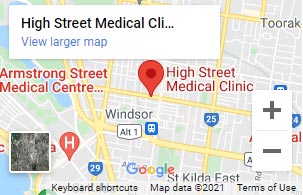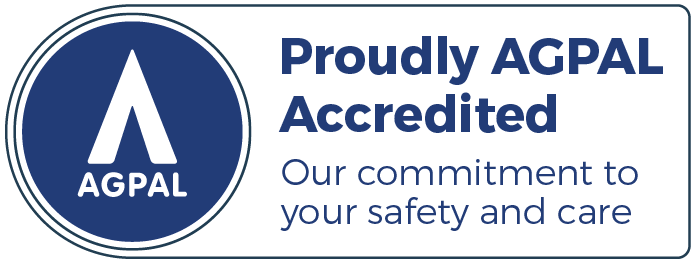Surgical and Non-Surgical Treatments
![[PLACEHOLDER IMAGE]](https://hsmc.com.au/wp-content/uploads/2024/02/depositphotos_71002415-stock-photo-patient-and-doctor-taking-notes.jpg)
We offer both surgical interventions and non-surgical treatments of skin cancer. Due to the complexity of skin cancer, we emphasise a personalised approach, ensuring that you are informed and supported from diagnosis through to treatment and beyond, including referrals to specialists if required.
Surgical Interventions
Surgery is often the most effective approach to completely remove skin cancer. Our clinic specialises in a variety of surgical procedures, each chosen based on the type, size, and location of the cancer, as well as the patient’s overall health.
- Elliptical Excision: Removes the cancerous area and a margin of surrounding tissue to ensure complete cancer removal.
- Punch Biopsy: A cylindrical core of tissue is extracted, including deeper layers, to diagnose deeper or more aggressive cancers.
- Shave Biopsy: A surface-level sample is taken, suitable for less invasive cancers.
- Incisional Biopsy: Part of the lesion is removed for diagnosis, and is used when cancer is suspected in larger areas.
These procedures are critical for not only removing the cancer but also confirming its type and stage, guiding further treatment if necessary.
Non-Surgical Treatments
Non-surgical treatments for skin cancer may be an appropriate choice for early-stage cancers, lesions in cosmetically sensitive areas, patients with certain health conditions that make surgery risky, and for those who prefer a less invasive alternative to surgical interventions. Non-surgical options may include:
- Curettage and Cautery: After scraping away the lesion, the area is burned to eliminate any remaining cancer cells and to control bleeding.
- Cryotherapy: This involves freezing cancerous cells with liquid nitrogen, ideal for superficial cancers.
- Topical Treatments: Medications applied to the skin can treat certain types of skin cancer or precancerous skin lesions by killing cancer cells or stimulating the immune system to attack them.
- Photodynamic Therapy (PDT): Combines a light-sensitising agent with a light source to destroy cancer cells, offering a targeted approach to treating surface-level skin cancers.
Referral to Specialists
Understanding the diverse nature of skin cancer, there are instances where the expertise of a skin cancer specialist is necessary for advanced treatment. Should your condition require it, we facilitate referrals to dermatologists, surgical oncologists, or other specialists to ensure you receive the highest standard of care.
What to Expect
When visiting us for your skin cancer treatment, here is an overview of what to expect, tailored to the treatment path selected for you:
- Initial Consultation: Begin with a detailed discussion about your diagnosis, including the type and stage of skin cancer. We’ll review your medical history and any specific concerns to ensure a comprehensive understanding of your condition.
- Treatment Plan: Based on the consultation, we will present a personalised treatment plan. This may include surgical interventions, non-surgical options, or a combination of both, depending on the nature of your skin cancer.
- Post-Treatment Discussion: Post-treatment, we’ll discuss the outcomes and any further steps that might be necessary, such as additional treatments, monitoring, or follow-up appointments.
- Follow-Up: Recommendations for post-treatment care, signs to watch for, and scheduling follow-up visits to monitor your recovery and ensure the effectiveness of the treatment.
At all stages of your treatment, your health, comfort and peace of mind is at the forefront. Our goal is to provide you with clear, supportive guidance through every phase of your skin cancer treatment.
Skin Cancer Doctors
FAQs
The decision is based on the cancer’s type, size, location, and depth, as well as your health and personal preferences. We aim for the most effective, least invasive option.
Recovery varies significantly depending on the treatment. Surgical treatments may require wound care and some downtime, while non-surgical options often have minimal recovery periods.
Whilst we strive to minimise scarring, some procedures may leave a mark. We discuss all potential outcomes before proceeding with treatment.
Non-surgical treatments can be highly effective for specific types of skin cancer, especially when detected early. Effectiveness varies based on the cancer’s type and stage.
Learn more about our Skin Check Services and how we can help in the early detection and prevention of Skin Cancer.









